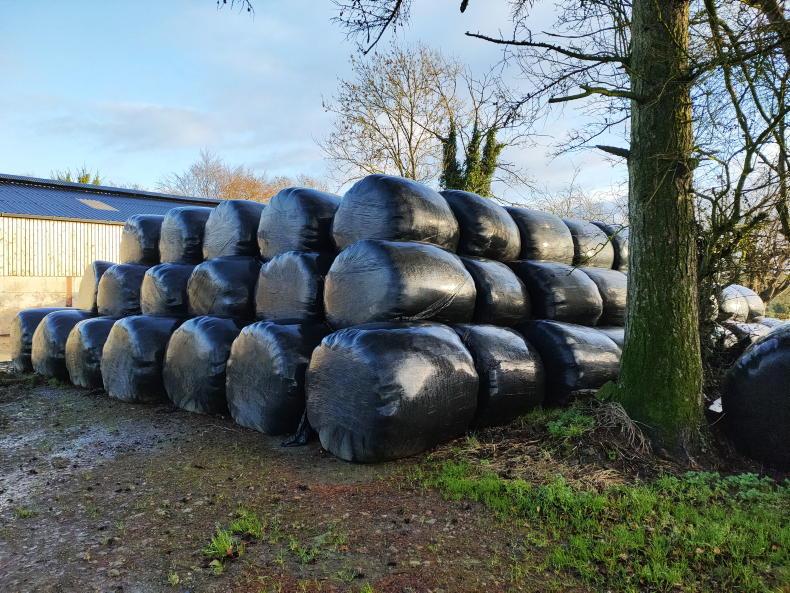Farm assurance bodies across the UK must reduce the number of audits on farms and make the process simpler for farmers, a report produced as part of a high-level independent review of assurance schemes has concluded.
The review was commissioned in response to the backlash from farmers against plans by Red Tractor to introduce new environmental standards into its assurance schemes. The proposals for a ‘Greener Farms Commitment’ module were dropped a few months later in March 2024.
While it is generally recognised that the plan to add on an environmental section was poorly handled by Red Tractor, the report published on Monday argues that issues around environmental sustainability will have to be addressed in schemes going forward.
However, the first of nine main recommendations relates to the “urgent need” to reduce the complexity of standards contained in current schemes.
Over the next six months, the various farm assurance bodies across the UK should review their standards and produce a plan which sets out which will be removed, replaced or improved. The main principle should be to focus “only on what is necessary,” states the report.
When it comes to farm audits (inspections), the report authors want to see a right of appeal for a farmer to an independent person if non-compliance is found.
“Unless non-compliance relates to an issue of food safety or some other serious breach of standards, it should not result in immediate suspension of market access,” the report adds.
Longer-term, the review authors suggest there should be a reduction in the frequency of audits of farms that are consistently compliant with scheme rules.
Reset
Other recommendations include the need to make better use of technology to collect farm data and to reset formal structures to ensure farmers are to the fore.
“In some schemes there is an imbalance of power between the farming community and others involved in setting the standards for farm assurance,” states the review.
The authors of the review want schemes to have a transparent process in place to appoint farmers on to boards and argue that those who are appointed must engage with the wider farming community to ensure views are properly represented.
Environment
On the issue of incorporating environmental standards into farm assurance schemes, the general argument made is that at the time farm assurance schemes were set up in the 1980s and 1990s it was mainly in response to food safety issues. As a result, animal traceability, feed, medicine records, etc, were core requirements.
However, environmental sustainability is now the main issue to be addressed. “There is no escaping the fact that environmental standards in farming need to be improved and that farm assurance will need to take account of these developments, sooner rather than later,” states the review report.
The authors go on to argue that there is also an urgent need for the industry to agree a menu of actions that farms can take to meet farm assurance requirements in this area. However, if processors and retailers want farmers to undertake specific environmental work, then suppliers must be properly compensated for their efforts.
Standards
The remaining recommendations include that all the various schemes should work together to ensure similar standards are applied across the UK.
There are also recommendations made around the need to consistently monitor the standard of imported food. However, in their review, the report authors are pretty dismissive of claims that the standards met when producing imported food consistently fall below what is expected of farmers in UK assurance schemes.
“The fact is that the argument that imported food is always of a lower standard than that produced in the UK is not true,” states the report.
Review by four independent commissioners
The 198-page review of UK farm assurance was conducted by four independent commissioners appointed by the UK farming unions and AHDB.
The lead commissioner was former Harper Adams Vice Chancellor, Dr David Llewellyn, assisted by James Withers, the former chief executive of Scotland Food and Drink, ex Defra civil servant Katrina Williams and Mark Suthern who was previously with Barclays Plc.
There was no representative with a background in NI agriculture although Professor Chris Elliott from Queen’s University Belfast provided a critical review of the report ahead of publication.
Change required, says UFU president
Welcoming the publication of the independent review, Ulster Farmers’ Union (UFU) President William Irvine said it makes it clear that significant improvements are required to assurance schemes to rebuild trust among farmers.
“Farmers’ concerns about unnecessary complexity, costs, and a lack of genuine collaboration have been ignored for too long. It’s time for assurance schemes to revisit their core purpose. Farmers want assurance schemes they can believe in, not bureaucratic systems that fail to deliver value,” said Irvine.







 This is a subscriber-only article
This is a subscriber-only article










SHARING OPTIONS: